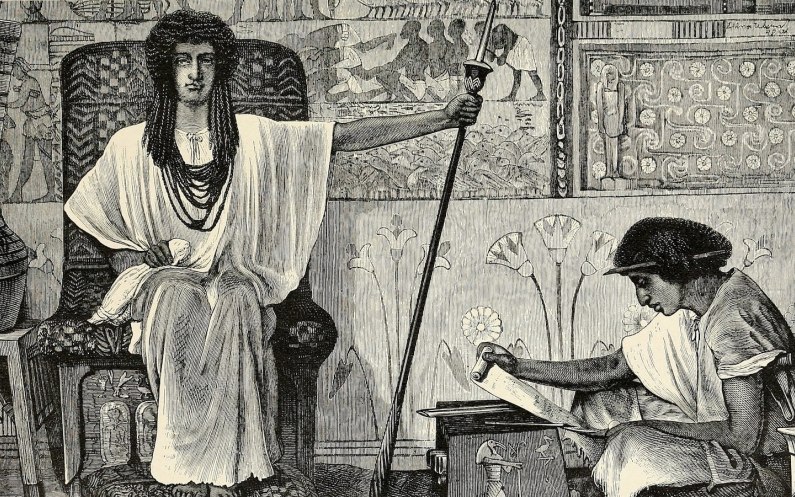
Seeing Joseph as a Type of Christ
Layton’s recent post about the character of Joseph, the son of Jacob is an articulate and well-reasoned apology against the notion that the Genesis account portrays Joseph as an arrogant or naïve young man who didn’t know when to keep his mouth shut; that Joseph foolishly bragged about his dreams in which his parents and older brothers bowed down to him.
Now, granted, if I were in Joseph’s sandals, my father’s obvious “favorite” in a family with ten strong, jealous, older brothers, two of whom had ambushed and killed the men of an entire city while the others helped to plunder its contents, including the women and children, I would probably tread lightly. However, I think Layton is spot on. The divine record in Genesis is not intended for us to read into it our experiences and understanding, making the text say what it does not say. There is no explicit motive, nor the suggestion of brashness or ignorance assigned to Joseph. The account in Genesis 37 is focused on those points of action necessary to demonstrate God’s faithfulness to his covenant promise. The dreams function to leave the reader with no doubt that everything that was about to happen was under the control of God.
But Layton raises another question at the end of his post. Does the fact that nowhere in the entire thirteen-chapter narrative of Joseph do we find any hint of sin in Joseph’s behavior mean that the Bible is preparing Joseph to serve as a type of Christ?
JOSEPH AND JESUS
I will answer Layton’s question in the affirmative. The fact that Joseph remains “sinless” in the narrative (though we are theologically aware that all sin, Rom 3:10) is one of many points of contact between the lives of Joseph and Jesus, too numerous to fully enumerate here. For example, like Joseph, Jesus was the beloved Son of the Father (Matt 3:17; cf. Gen 37:3) who was rejected by his own people, and by his brothers explicitly (John 1:11, 7:5, 15:24; cf. Gen 37:4–5). Jesus left his exalted status to become a slave (Phil 2:7), after which he was wrongfully accused and delivered over to death. Yet, out of that death Jesus broke free in his resurrection in order to become the Savior of his people (Matt 1:21). In a strikingly similar way, Joseph became a slave because of the sin of his brothers (Gen 37:25–28, 36) and was later wrongly accused and left for dead in Pharaoh’s prison (Gen 39:19–20). Yet God showed special favor to Joseph in that lowly place (Gen 39:21; cf. Ps 16:10) and brought him out of prison, exalting him to a position of absolute authority (Gen 41:37–44) for the purpose of saving his people from certain death (Gen 50:20).
There are many other details that call our attention to the similarities between Joseph and Jesus. Joseph and Jesus were both sold for silver (Gen 37:28; Matt 26:15), stripped of their clothing (Gen 37:23; Matt 27:28), bound (Gen 39:30; Matt 27:2) and condemned with two other criminals (Gen 40:1–3; Luke 23:22–23), one of whom received life and the other death (Gen 40:20–23; Luke 23:39–43).
But we can also lose ourselves, as they say, in the trees of detail and miss the forest. Joseph serves as a type of the work of Christ because he saved his people and brought them into unity with one another. Throughout the entire narrative of the patriarchs, beginning with Abraham in Genesis 12, the family from whom would come the Messiah were never in complete harmony with one another. There was a strained relationship between Abraham and Sarah, between Abraham and Lot and their families and servants. There was major tension between Sarah and Hagar and Ishmael. Isaac and Rebekah’s son, Esau hated his brother Jacob and vowed to kill him. And Jacob, while trying to escape his brother’s anger fell under the wrath of Laban, who had tricked him into marrying one daughter when Jacob had agreed to marry another.
Even when God saved Jacob from Esau’s revenge, and the brothers were reunited and embraced one another, Esau continued toward Seir and Jacob went south to Succoth and stayed there. As far as we know, the brothers never met again.
Later, Jacob’s sons sold their own brother, Joseph into slavery and told their father he was killed by a wild beast, allowing him to live for several years at the end of his life with the terrible lie that his favorite son was dead.
But there is a climax to the entire, sometimes sordid record of events that begins in Genesis 12. After God brings the 70 members of Jacob’s family into Egypt through the exalted Joseph, so that the seed promised in Gen 3:15 is preserved from extinction, Jacob dies. And Joseph’s brothers cry out to him, fearful that Joseph will now take his revenge upon them for their wickedness (Gen 50:15–21). But Joseph is brokenhearted over their fear and again assures them of his kindness. So, finally, after four generations, the family from whom the Messiah would come is living together in harmony, all because one man was willing to suffer and forgive.
When we think of the story of Joseph in those larger terms, it does for us what a type is supposed to do. A type functions heuristically, allowing us to probe and appreciate in a fresh way that to which the type points, helping us to realize significance that we might have overlooked.

